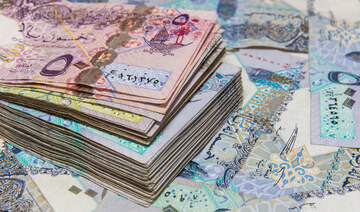Qatar’s Inflation Rate Eases by 1.15 Percent Year on Year in January
The National Planning Council’s latest report has revealed a significant drop in Qatar’s inflation rate, with the consumer price index (CPI) settling at 107.45 points in January. This marks a notable decrease of 1.15 percent year on year, driven primarily by declines in food, housing, and transport costs.
According to the council’s data, the monthly CPI also recorded a significant drop of 2.53 percent, mainly due to a decline in housing, water, electricity, and other fuels, which fell by 2.53 percent from December. This sharp decrease is largely attributed to the ongoing efforts of the Qatari government to control prices and ensure stability in the economy.
Experts predict that Qatar will record the lowest inflation rate in the Gulf Cooperation Council (GCC) region this year, averaging 1.4 percent, which is below the GCC’s average inflation rate of 1.9 percent and the wider Arab region’s 8.5 percent. The International Monetary Fund (IMF) also expects Qatar’s inflation to stabilize around 2 percent over the medium term, supported by the expansion of liquefied natural gas (LNG) production, public investment, and a strengthening tourism sector.
Declines in Key Sectors Contribute to Reduced Inflation
The National Planning Council’s report highlights significant declines in several key sectors that contributed to the reduced inflation rate. Food and beverage prices recorded a notable drop of 2.75 percent monthly, while recreation and culture saw the sharpest decline at 14.87 percent. Clothing and footwear prices fell by 1.13 percent, and furniture and household equipment dipped 0.77 percent. The restaurants and hotels sector also experienced a slight decrease of 0.55 percent.
In contrast, several categories recorded price increases, including miscellaneous goods and services, which rose by 1.93 percent, health by 0.91 percent, and transport by 0.61 percent. Housing, water, electricity, and other fuels saw a minor uptick of 0.11 percent, while communication and education prices remained relatively stable, with marginal increases of 0.09 percent and 0.02 percent, respectively.
Year-on-Year Figures Show Notable Shifts Across Key Sectors
The annual CPI decline by 1.15 percent was mainly driven by a significant 5.44 percent decrease in food and beverage prices, while housing, water, electricity, and other fuels fell by 4.67 percent. Recreation and culture recorded a decline of 4.29 percent, followed by restaurants and hotels, which dropped by 1.82 percent.
Furniture and household equipment fell by 1.73 percent, while transport costs were down by 1.01 percent. Miscellaneous goods and services rose by 7.92 percent, communication saw an increase of 18.68 percent, and clothing and footwear rose 1.91 percent. Education costs climbed 1.70 percent, while health recorded a slight increase of 0.04 percent.
Consumer Prices Remain Stable Despite Minor Adjustments
The National Planning Council emphasized that consumer prices remain stable, with inflation largely contained within expected levels. The council’s data also highlights the CPI excluding housing, water, electricity, and other fuels stood at 111.76 points in January, reflecting a monthly decline of 3.09 percent and an annual drop of 1.80 percent.
The report underscores the ongoing efforts of the Qatari government to maintain price stability and ensure that inflation remains within manageable levels. With the economy showing signs of resilience and growth, Qatar’s inflation rate is expected to continue trending downward in the coming months.
Conclusion
In conclusion, Qatar’s inflation rate has eased by 1.15 percent year on year in January, driven primarily by declines in food, housing, and transport costs. The National Planning Council’s report highlights significant declines in several key sectors, including recreation and culture, restaurants and hotels, furniture and household equipment, and clothing and footwear. Despite minor adjustments across multiple sectors, consumer prices remain stable, with inflation largely contained within expected levels.
The Qatari government’s efforts to control prices and ensure stability in the economy are paying off, as experts predict that Qatar will record the lowest inflation rate in the GCC region this year. With the expansion of LNG production, public investment, and a strengthening tourism sector, Qatar’s inflation is expected to stabilize around 2 percent over the medium term.
As the Qatari economy continues to grow and develop, it remains essential for policymakers to maintain a watchful eye on price stability and ensure that inflation remains within manageable levels. By doing so, they can safeguard the purchasing power of consumers, support businesses, and promote economic growth and development in the country.

